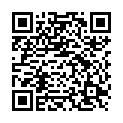Module content:
Hydrocarbons, alkanes, alkenes, ethers, esters, functional groups, aromatics, heterocycles, sugars, carbohydrates, carboxylic acids, pH, buffer systems, calcium carbonate balance, fats, soaps, cell structure, eukaryotes, prokaryotes, organelle evolution, amino acids, proteins, membrane proteins, enzymes, enzyme kinetics, nucleic acids, RNA, DNA,
Methods: paper chromatography, GC, HPLC, DC, gel ectophoresis, photometry, ion exchangers
Characteristic measurement technology: Gravimetry, titrimetry, potentiometry, chromatography, ampherometric photometry, enzyme test; Sterile technique: preparing culture media, buffer systems, pouring agar plates, dilution smears, enrichment culture, pure culture; Microbiological tests and working methods: disk diffusion test, zone of inhibition tests, viable bacteria count, sterile filter technology, microscopy, strain maintenance;
Handling microorganisms, preventing microbial growth, introduction to hygiene, enrichment conditions, pure cultures, culture media, culture conditions, culture methods, viable bacteria count, sterility control, streaking, disk diffusion test, antibiotics, selective energy conversion of organisms, metabolism types chemoorganoheterotrophy: glycolysis, citric acid cycle, respiratory chain, fermentation, anaerobic respiration, chemolithoautotrophy, phototrophy; Introduction to microbial ecology, ecology in lakes, seas, rivers, soils,
hygiene, waterborn and foodborn deseases, food preservation; Introduction to food biotechnology: beer, wine, cheese etc...
[updated 05.11.2020]
|

